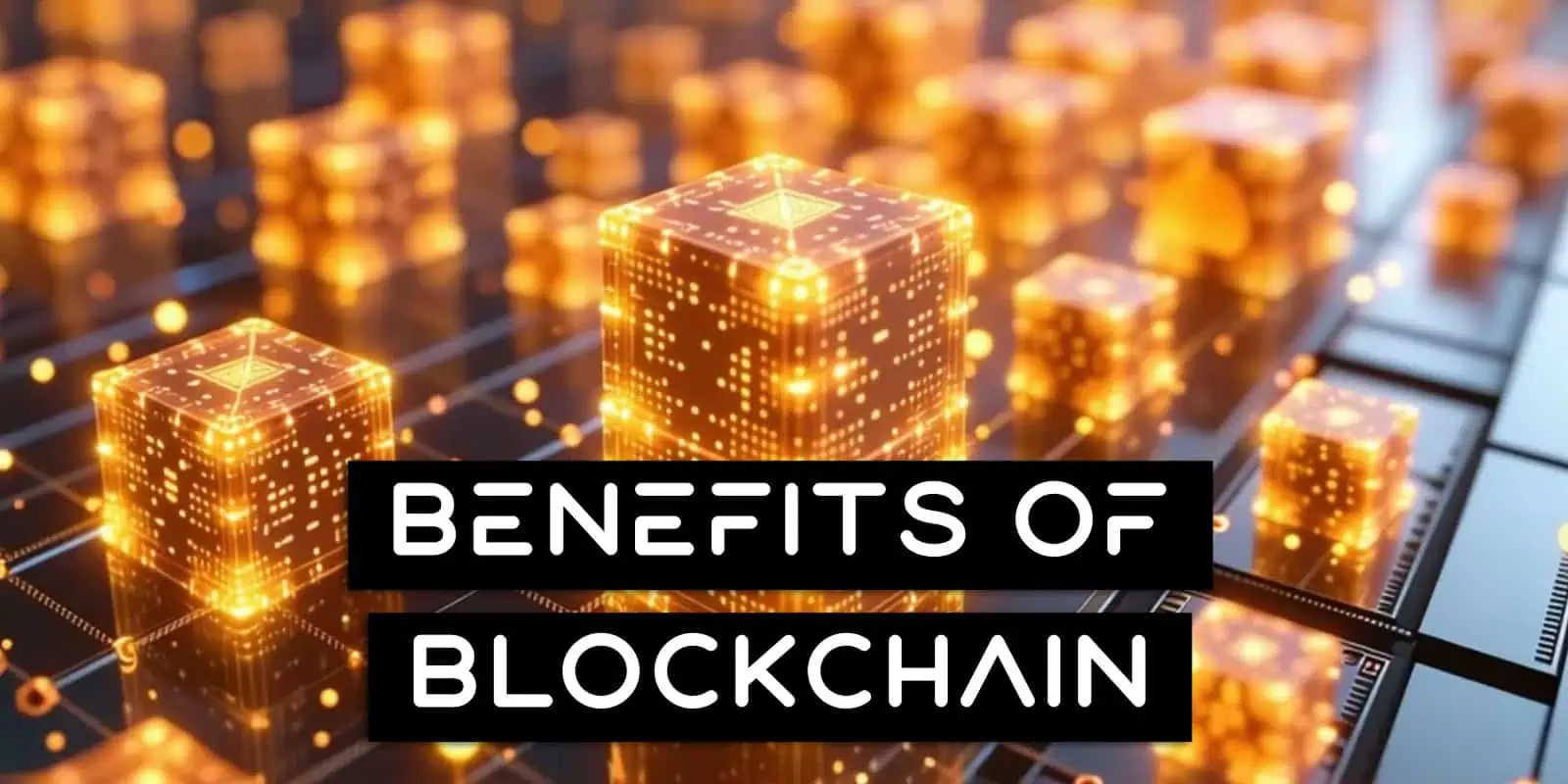The benefits of Blockchain are either completely ignored or something that only cryptocurrency enthusiasts or tech-savvy people are aware of. However, its benefits extend far beyond the world of finance, offering a solution to something never before solved by humanity. Something that will transform the world all the way from finance to other various industries such as supply chain management or even voting systems.
Contents
What Is A Blockchain?
First though a quick recap. A blockchain is a distributed database, also referred to as a distributed ledger or decentralized ledger, that’s shared between many nodes on a network. They are most commonly used in cryptocurrency networks, but they have been used for other things too. The data that’s stored in a blockchain is Immutable, meaning that it can never be changed.
Let’s break down some of those key terms to further clarify that paragraph:
- Blockchain: A type of database or file, similar to an Excel spreadsheet
- Distributed: This means there is more than one copy stored throughout the world
- Node: Any computer or server that runs the software and is part of the blockchain network
- Immutable: This means that the data can never be altered or deleted
In order to keep track of who owns what tokens or coins, cryptocurrencies use blockchain technology. This big database or file is constantly updated to show who owns what. For example it might say “Bill owns 1 bitcoin”.
How Does Blockchain Work?
You’ve likely used Excel before, maybe for your own finances. It’s important to realize that at its heart, this is all blockchain really is. A lot of people over complicate it, but it’s just a big file full of data. What is rather different though is how that data is entered and accessed as well as where the data is stored.
Rather than opening good old Excel and just typing in a number, with blockchains you use programs called scripts. These scripts are what enters in or accesses the data on your behalf. Another difference is that blockchains are distributed or decentralized. As said, this simply means that there is more than one copy of them for redundancy purposes and that those copies are distributed on many computers (called Bitcoin Nodes) all around the world.
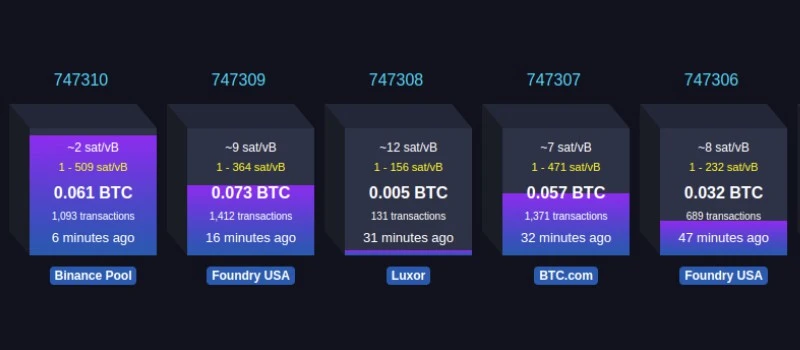
When a transaction is broadcast to the Bitcoin network and ownership of various coins changes hands, it’s bundled together into a “block”. All the information in that block is then run through a cryptographic algorithm called a hashing function. This creates a unique, hexadecimal number called a hash and this hash is added to the block header.
Again we have a number of terms you might not be familiar with, but it’s OK. Just remember that through these hashes, a link is formed from one block to the next. If a block, or the transaction data inside that block, is changed, the hashes no longer match and the network will reject it. This is what “chains” one block onto all the existing ones.
All these individual blocks, chained together, form the block chain. While there are tens of thousands of copies of the Bitcoin blockchain, they are all identical on every node.
Benefits Of Blockchain Technology
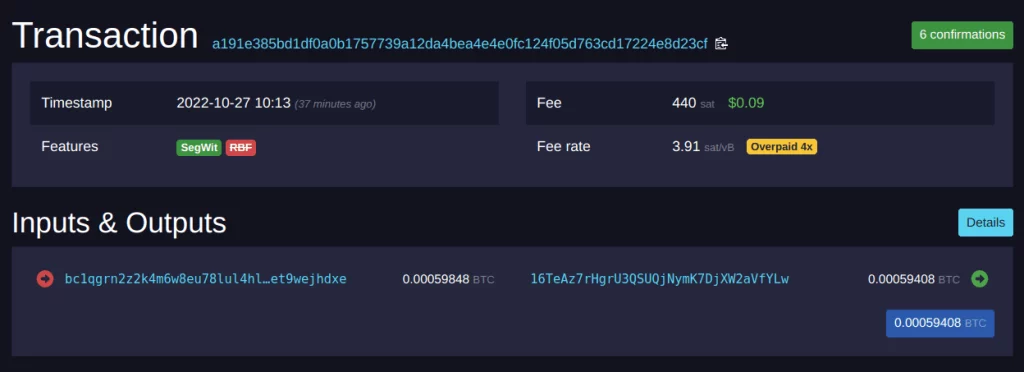
OK, so now that you have a better understanding of what a blockchain is at a fundamental level, let’s now look at why anyone on Earth would want to store data in this fashion versus, say, just a simple Excel file.
While people that know barely anything about what blockchain technology is like to boast that it’s useless or has no benefits over a simple database, they’re quite wrong. There are significant benefits to blockchain networks including:
Incredible Security
As noted above, blockchain technology is immutable. This means the data on a blockchain is forever unchangeable. It means the data stored is not just safe from hackers, but safe from everyone no matter who they are or what access they have such as owners or admins. This can be critical for certain types of historical data that should never change such as financial data, patient data or even supply chain data.
Cost Savings
Validating and processing a financial or business transactions takes work and as such, costs money. As blockchains perform this entirely automatically rather than via humans and multiple third party companies, transaction fees costs much less.
Reduced Errors
As this transaction processing is done entirely by computers with tens of thousands of them checking every bit of data with each new block, there are no errors like there are with humans and trusted third parties or companies doing this. This also obviously hugely reduces manual tasks too.
Increased Availability
With computers and the processing of transactions being fully automated also comes increased availability and network uptime. For the last 10+ years Bitcoin has had a perfect 100% up time and operates 24/7/365, unlike existing systems (eg.banks) which regularly close or go down. Again, this can be critical when we’re talking about mission critical data or services such as finance or other information technology.
Increased Settlement Speed
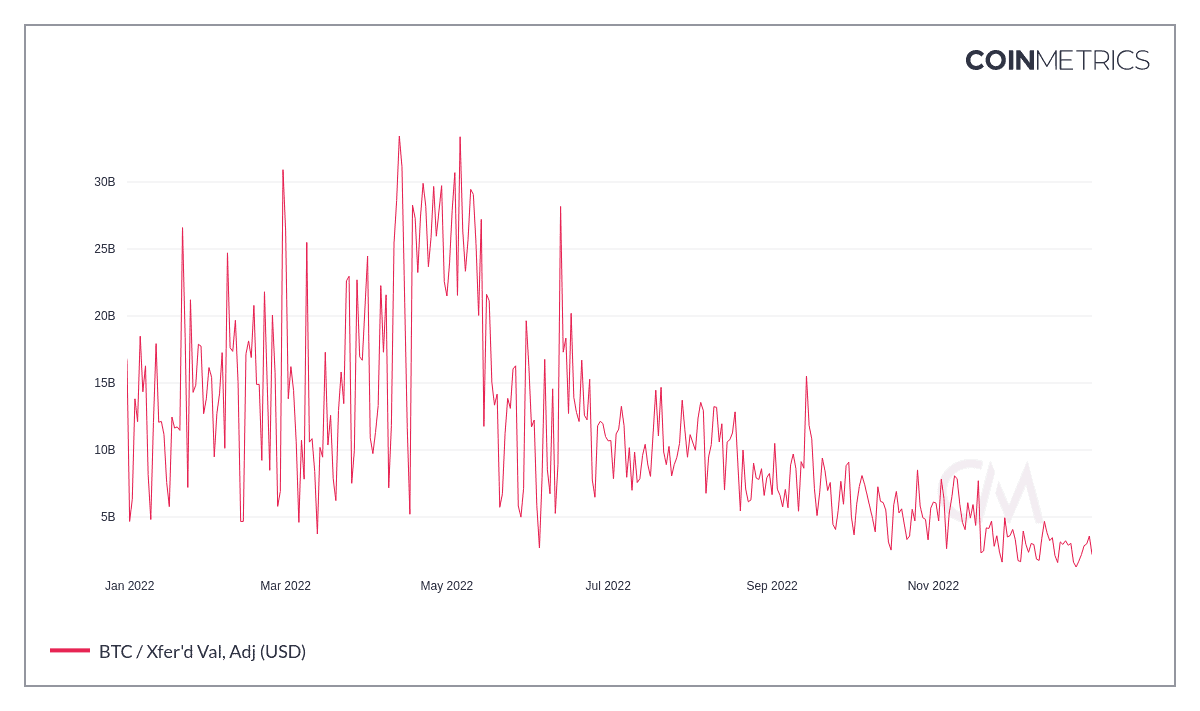
While you might buy a cup of coffee at the shop in seconds, this transaction isn’t final and it can often take days, weeks or even months for the funds to fully settle in the sellers account. By contrast blockchain transactions can take a few minutes and once confirmed, are irreversible meaning there’s no risk of a charge back.
This speed is even more pronounced when the amount transferred gets larger and larger. With Bitcoin you can send $100 billion around the world in minutes, fully settled. Try doing that with any other currency!
Increased Transparency
As blockchains are usually transparent, it means that everyone can see exactly what’s happening. This makes it much harder for criminals or companies to hide their illegal or bad acts and promotes a more honest environment.
This also greatly helps with data sharing, as everyone can at all times see what’s going on in the network in real time. This can assist businesses with overcoming key challenges such as ensuring that all players are being honest and are doing what they say they’re doing. For example, many Spot Bitcoin ETF’s now publicly disclose their holding addresses so everyone can confirm that they hold the funds they say they do.
Decentralization
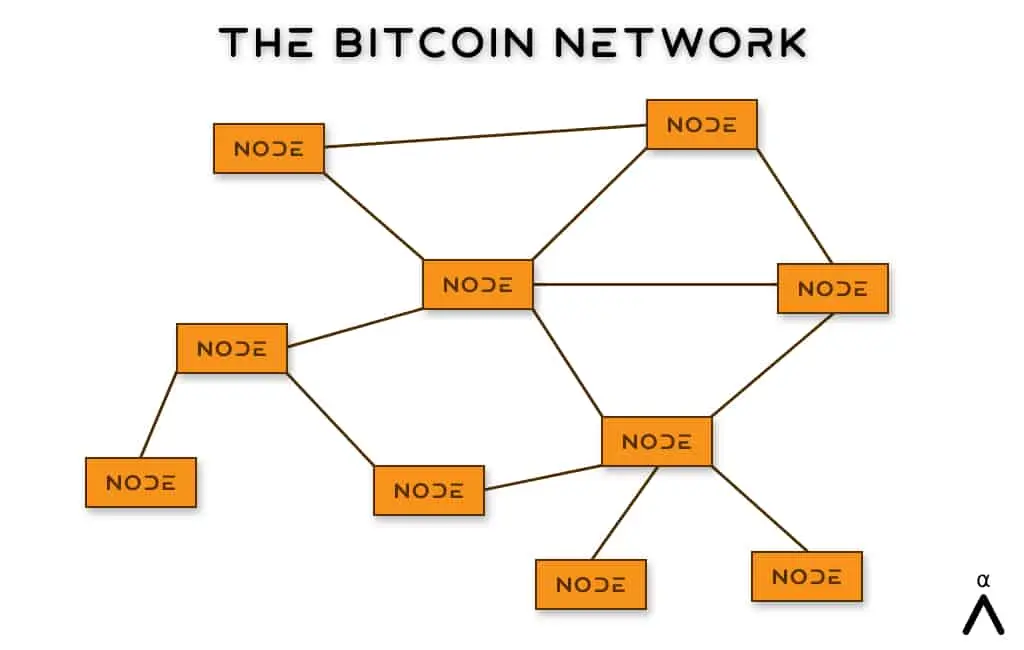
As mentioned above, blockchains are made up of a fully decentralized structure ensuring that there is no collusion and abuse of power over the blockchain data. This decentralization also makes the data far more redundant and safe compared to centralized ones that can suffer data loss due to attacks or accidents.
Permissionless
Unlike conventional systems in finance, most blockchains are transparent and open in nature. This eliminates the requirement for people to have to ask permission or to have a certified ID or account to access the distributed network. This is not only handy, but critical for billions of people who are currently unbanked in the world due to not having this sort of documentation through no fault of their own.
Censorship Resistant
You’d have to stop the Internet to stop the Bitcoin blockchain. By contrast it’s trivial for governments to cut off access to centralized services such as social media or even the entire SWIFT network. This is again critical for billions of people who currently live under oppressive rulers or dictatorships and that actively suppress their access to basic financial services such as saving or sending and receiving of money.
Whether its your own government, another government that is enacting sanctions on your country, or just some stupid company banning or blocking your access, censorship is a huge problem for billions. While you might be fine with not being able to access TicTok, not having a bank account or being able to save money is a little more serious. The Bitcoin blockchain revolution and its incredible censorship resistance has restored these capabilities to millions already and only continues to grow.
Tamper Resistant
As every block is cryptographically linked to the block before it, tampering with a blockchain database is impossible. By contrast, a centralized database could be secretly altered and there would be no way to know that it was changed or by whom.
Efficient Auditing
Validating and securing traditional databases like those held at many financial institutions takes work and as such, has associated operational costs. As blockchains perform this entirely automatically (via checking the block headers hashes) rather than via humans and multiple third party companies, things are much more efficient and transaction fees costs much less.
The above blockchain benefits most likely aren’t required for many day to day databases that individuals, companies or governments use. In fact, Bitcoin and its incredibly unique and first of its kind use case is still to this day the only proven use case for Blockchain technology.
Other Blockchain Solutions
In 2017, the word “Blockchain” was so over hyped that various sectors and companies saw their share price increase by over 400% – in a single day! – simply by adding the word to their company name. People with no clue thought it was the next greatest thing since the Internet and blockchain applications became the hottest thing. Needless to say, they got rekt.
At its heart a blockchain is just a database that’s copied onto multiple computers all around the world. This makes it much less efficient and slower to update and maintain than having one, central database. But. It has the benefit of making it decentralized as well as the other key characteristics discussed above. As such, if you can use a normal, centralized database to accomplish your task or App and don’t need it to be decentralized, then using “Blockchain” likely isn’t a good idea.
For Bitcoin, the whole point is to remove trusted third parties and centralized authorities, so using a traditional database isn’t possible. This is why Bitcoin has to use a public blockchain, even though it’s not as efficient or fast.
Many companies have tried to use blockchain technology for other applications like patient records, medical records or storing other sensitive data that’s often found at healthcare organizations and some have shown promise. However it’s still too early to tell whether there are other solid use cases for blockchains beyond Bitcoin. Some now think that it should be combined with artificial intelligence, but these just seems to be another attempt at hyping various industries up so they can get VC funding.
Smart Contracts

Smart Contracts are another big part of blockchain development. They are code that’s stored on the blockchain and that automatically execute predefined actions without having to involve any external intermediaries. Once deployed on the blockchain, they are set and cannot be changed.
For example, the contract might automatically send some funds to another address once goods have been received and verified by the buyer. There are numerous blockchain projects and blockchain communities out there all trying to build “Finance 2.0” using smart contracts and blockchain technology.
This is where they take current business processes, such as trading or loaning money, and try and host the process using a fully decentralized network, often on a blockchain, in order to improve efficiency. This often also ends up eliminating intermediaries and reducing the cost of whatever the process is as it’s done entirely via code and without traditional systems such as financial checks or human review.
Other smart contract uses specifically in Bitcoin are for opening and closing of Lightning Network channels and Multisig Wallets. Again though, these new systems aren’t without their downsides. As there’s not human oversight or even stopping of these coded contracts, there are continuous problems and hacking that occurs, especially when it comes to the “DeFi” projects, resulting in the funds getting drained or users money being stolen as a result.
While smart contracts aren’t inherently bad, outside of the simple and few Bitcoin cases mentioned above, it’s an incredibly new field and should be approached with extreme caution. Assume that any contract, especially those involved in other altcoin/DeFi projects, can and likely will be hacked at any time and that any funds secured or involved in them will be lost as a result.
FAQ
What Are The Advantages Of The Blockchain?
The benefits of blockchain over a more traditional, centralized database are many, including but not limited to: enhanced security, increased uptime of the network, increased settlement speeds, improved efficiency, increased transparency and decentralization, increased tamper and censorship resistance all on top of decreased errors and costs.
Why Is Blockchain So Useful?
Blockchain technology is useful because it allows humanity to have an open, immutable database in a decentralized nature that can record transactions for all of time without anyone being able to alter it. Never before has such a thing existed. It’s not just useful, it’s entirely brand new and unique.
How Do You Benefit From Blockchain?
While you can’t benefit from blockchain technology in a direct sense, as it’s just a database, you can benefit by using the Bitcoin network which is what is built on the blockchain. Bitcoin benefits all humanity by allowing anyone and everyone fair, permissionless, simple access to financial products such as savings, sending and receiving of monetary value without censorship or debasement.
What Is The Biggest Problem With Blockchain?
Blockchain technology is slower, less efficient and costs more overall when compared to a centralized database system. However a blockchain allows for the same database to be open, transparent, decentralized, permissionless and far more robust and secure. As such, each have their own trade offs and specialized use cases.
What Is Blockchain Actually Useful For?
The main purpose of a blockchain is to store data, such as financial transaction data, in a distributed and immutable way. This increases redundancy and availability while reducing errors, tampering and censorship.

